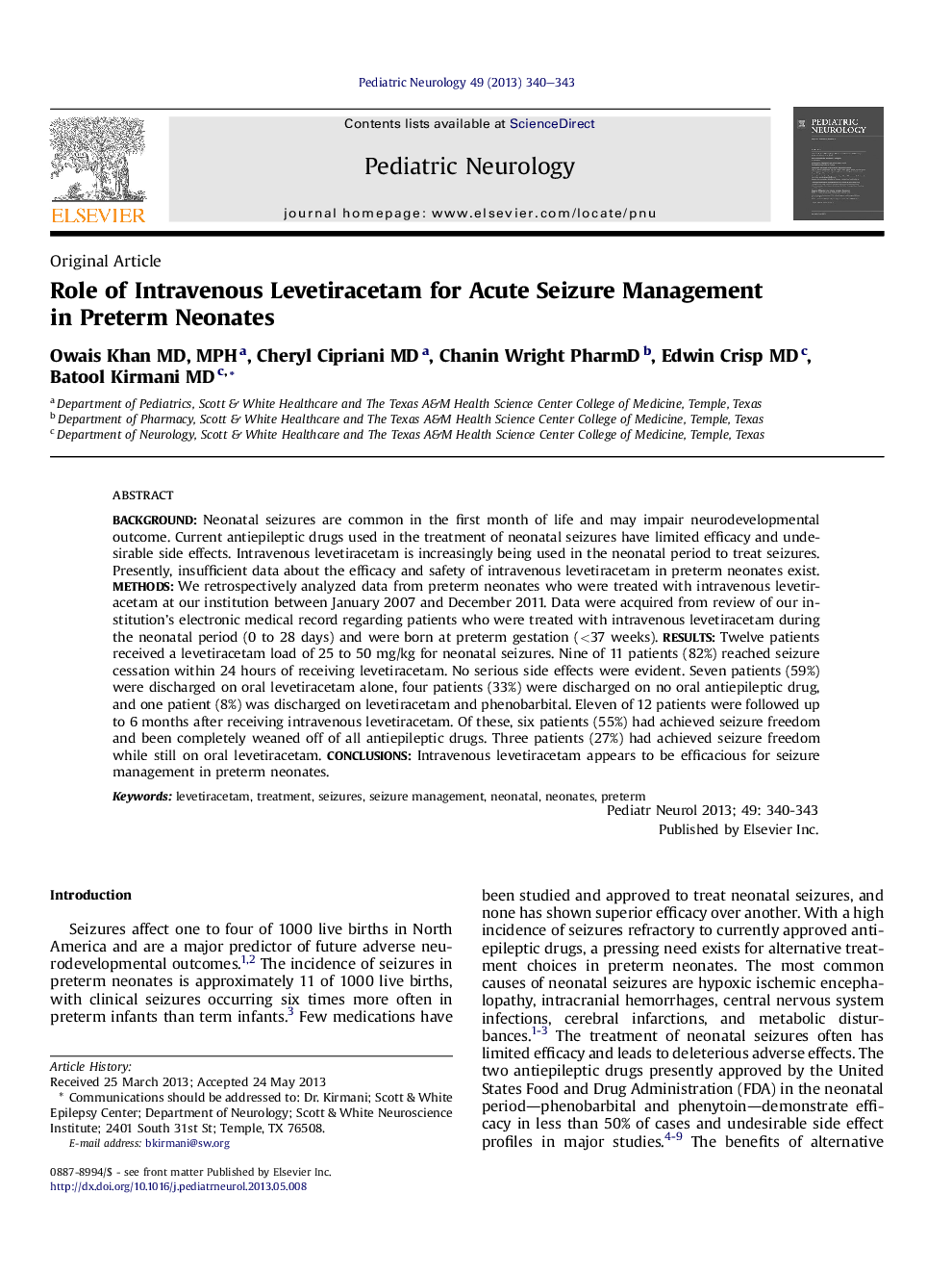| Article ID | Journal | Published Year | Pages | File Type |
|---|---|---|---|---|
| 3085023 | Pediatric Neurology | 2013 | 4 Pages |
BackgroundNeonatal seizures are common in the first month of life and may impair neurodevelopmental outcome. Current antiepileptic drugs used in the treatment of neonatal seizures have limited efficacy and undesirable side effects. Intravenous levetiracetam is increasingly being used in the neonatal period to treat seizures. Presently, insufficient data about the efficacy and safety of intravenous levetiracetam in preterm neonates exist.MethodsWe retrospectively analyzed data from preterm neonates who were treated with intravenous levetiracetam at our institution between January 2007 and December 2011. Data were acquired from review of our institution's electronic medical record regarding patients who were treated with intravenous levetiracetam during the neonatal period (0 to 28 days) and were born at preterm gestation (<37 weeks).ResultsTwelve patients received a levetiracetam load of 25 to 50 mg/kg for neonatal seizures. Nine of 11 patients (82%) reached seizure cessation within 24 hours of receiving levetiracetam. No serious side effects were evident. Seven patients (59%) were discharged on oral levetiracetam alone, four patients (33%) were discharged on no oral antiepileptic drug, and one patient (8%) was discharged on levetiracetam and phenobarbital. Eleven of 12 patients were followed up to 6 months after receiving intravenous levetiracetam. Of these, six patients (55%) had achieved seizure freedom and been completely weaned off of all antiepileptic drugs. Three patients (27%) had achieved seizure freedom while still on oral levetiracetam.ConclusionsIntravenous levetiracetam appears to be efficacious for seizure management in preterm neonates.
